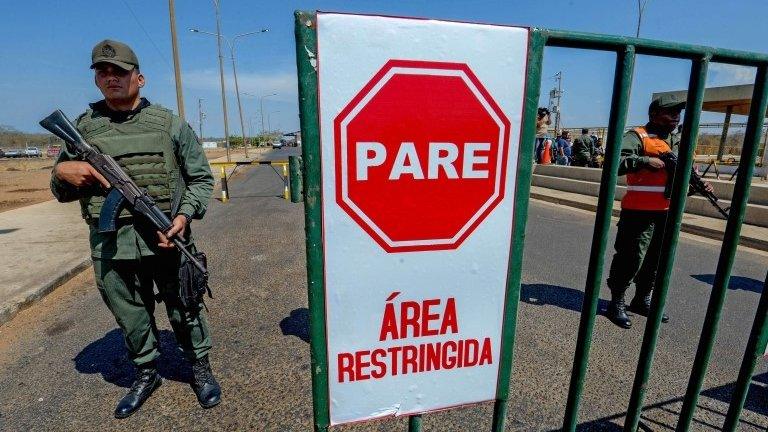Venezuelans cross into Colombia after border is reopened
- Published
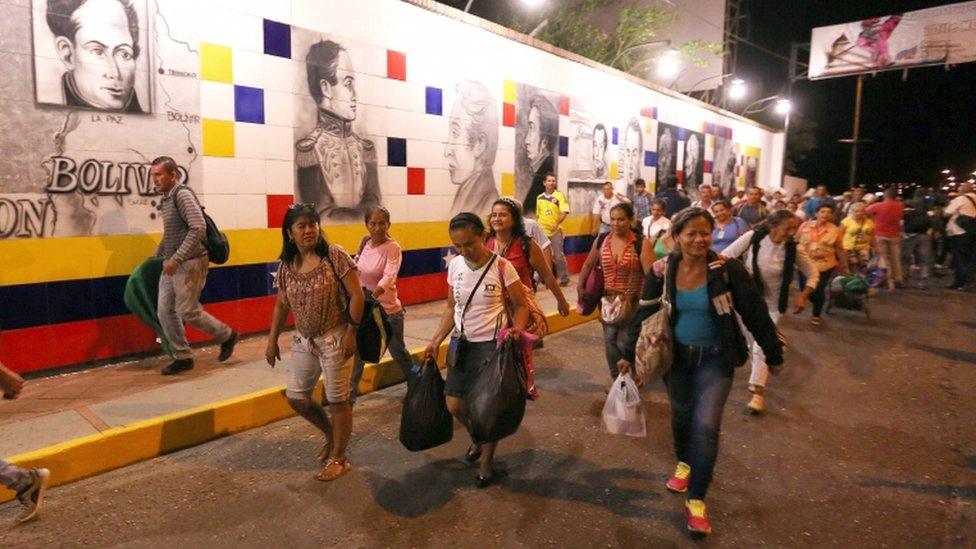
Long queues formed at the busiest border crossing, between San Antonio del Tachira, in Colombia, and Cucuta
The border between Venezuela and Colombia has been reopened after nearly a year.
Thousands of people began crossing into Colombia in the early hours of Saturday to buy much-needed supplies. Long queues had formed before dawn.
Venezuela is facing a severe economic crisis, with shortages of many goods. It had closed the frontier nearly a year ago on security grounds.
Five border crossings will remain open for 12 hours every day.
"I've had arthritis for seven years and I haven't been able to find the medications for the past six months," Marco Tulio Berdugo, a Colombian living in Venezuela, told El Universal newspaper.
"I came with my family to do some shopping because we can't find anything to eat," engineering student Wilmary Salcedo told Reuters news agency.
An agreement to reopen the border was announced on Thursday by Colombian President Juan Manuel Santos and his Venezuelan counterpart Nicolas Maduro.
The two presidents said that during the first stage only pedestrians would be allowed to cross.
"We are going to open the border gradually," said Mr Santos.
The five main crossings along the 2,200km-border (1,370 miles) will be open daily from 08:00 to 20:00 local time (13:00-01:00 GMT).
Growing discontent on the streets
Women push past border controls
The authorities expect the queues to disappear as people realise that the situation has been normalised.
"People can get here and cross every day of the week now," said Venezuelan border police chief Gustavo Moreno in Cucuta.
Mr Maduro ordered the border to be closed in August 2015 after former Colombian paramilitaries attacked a Venezuelan military patrol and wounded three soldiers.
Many Colombians were expelled, and bilateral trade has since fallen.
When border crossings were allowed briefly in July, nearly 200,000 Venezuelans poured across to stock up on items including cooking oil, sugar and rice.
Venezuela has suffered severe shortages for months as a result of the falling price of oil which is the country's prime source of income.
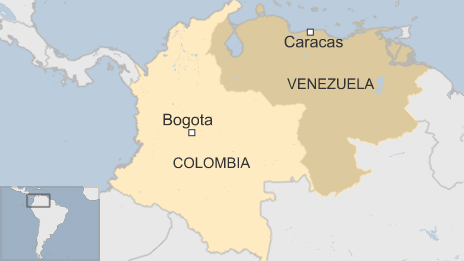
- Published6 July 2016
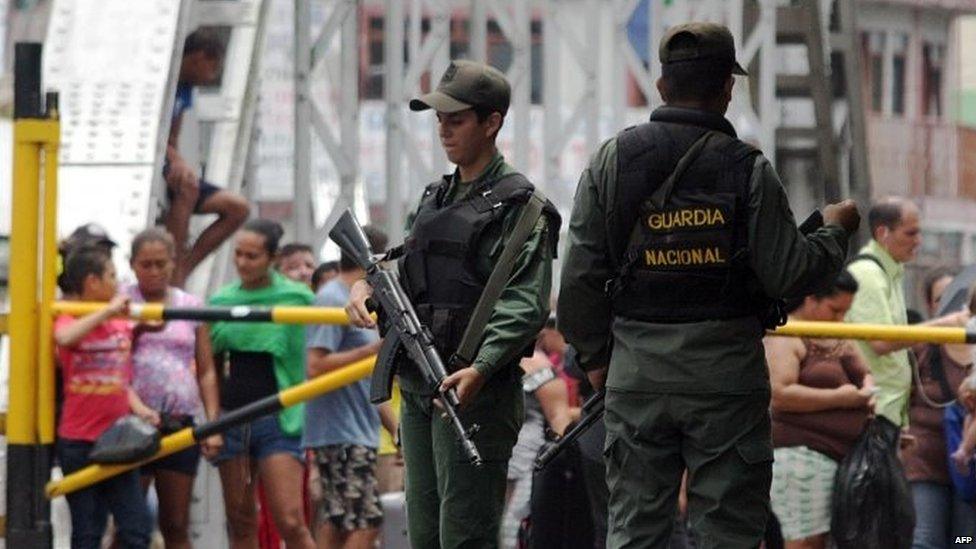
- Published4 July 2016
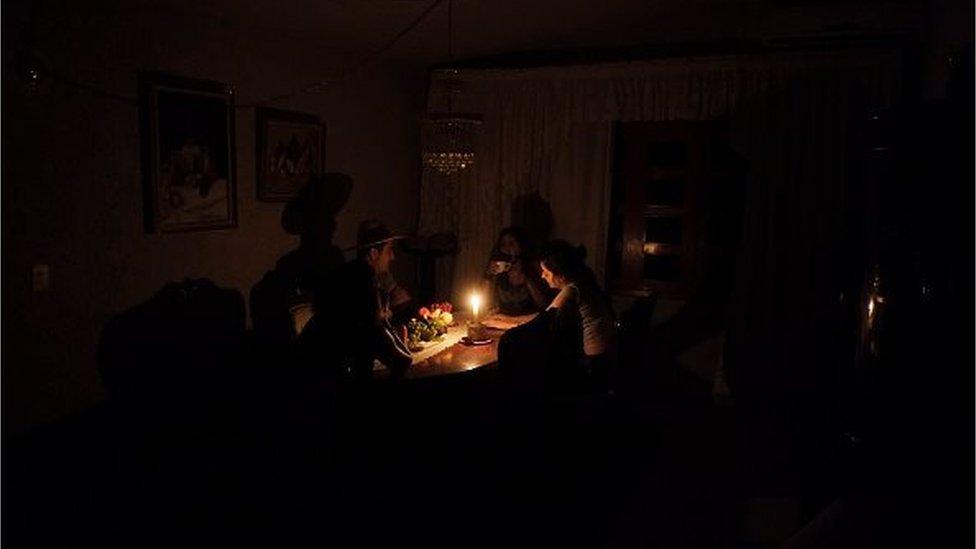
- Published16 September 2015
